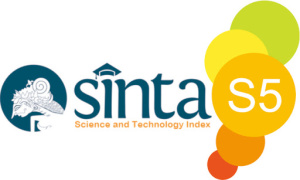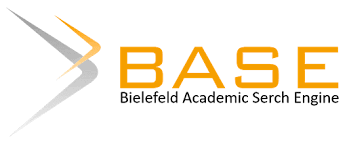AUDIT TATA KELOLA TEKNOLOGI INFORMASI DI RSUD X MENGGUNAKAN FRAMEWORK COBIT 2019
DOI:
https://doi.org/10.59819/jmti.v15i2.5425Keywords:
IT Governance, Governance Audit, RSUD X, COBIT 2019Abstract
An IT governance audit at X Hospital was conducted due to various issues affecting service quality and system performance. Critical points included an overloaded database that resulted in suboptimal website information updates, inadequate server specifications to run the website when users were active, poorly managed network cables that made the server vulnerable to disruptions, and an under-protected IT unit in website management. The study aimed to identify critical points, elicit IT process capabilities, and provide improvement recommendations based on the COBIT 2019 Framework. The methods used included interviews, observations, business goal mapping and alignment, and a capability level questionnaire. The audit results identified five main domains, namely APO12, BAI10, DSS02, DSS03, and DSS04, all at capability level 2. Recommendations included IT risk integration, asset management, accelerated incident handling, improved service and satisfaction, and rapid adaptation to increase capabilities to levels 3, 4, and 5.
Downloads
References
Algiffary, M. A., Herdiansyah, M. I., & Kunang, Y. N. (2023). JOURNAL OF APPLIED
COMPUTER SCIENCE AND TECHNOLOGY ( JACOST ) Audit Keamanan Sistem
Informasi Manajemen Rumah Sakit Dengan Framework COBIT 2019 Pada RSUD Palembang
BARI. 4(1), 19–26.
Bayu, K., Sudana, O., Wirdiani, A., & Paramartha, A. (2021). Evaluation of IT Governance
at Office X using the COBIT 5 Framework. Jurnal Ilmiah Merpati (Menara Penelitian
Akademika Teknologi Informasi), 9(1), 1. https://doi.org/10.24843/jim.2021.v09.i01.p01
Belo, G. I., Wiranti, Y. T., & Atrinawati, L. H. (2020). Perancangan Tata Kelola Teknologi
Informasi Menggunakan COBIT 2019 Pada PT Telekomunikasi Indonesia Regional
Kalimantan. JUSIKOM PRIMA (Jurnal Sistem Informasi Ilmu Komputer Prima), 4(1), 23–30.
Dawis, A. M., Meylani, Y., Heryana, N., Alfathoni, M. A. M., Sriwahyuni, E., Ristiyana, R.,
Januarsi, Y., Wiratmo, P. A., Dasman, S., Mulyani, S., Agit, A., Shoffa, S., & Baali, Y.
(2023). Pengantar Metodologi Penelitian.
Moryanda, R., Pujani, V., & Marpaung, Y. (2024). Evaluasi Sistem Informasi Manajemen
Rumah Sakit Menggunakan Framework COBIT 2019 (Studi Kasus: Semen Padang
Hospital).
Jurnal
Nasional
Teknologi
Dan Sistem Informasi, 9(3), 299–306.
https://doi.org/10.25077/teknosi.v9i3.2023.299-306
Nachrowi, E., Yani Nurhadryani, & Heru Sukoco. (2020). Evaluation of Governance and
Management of Information Technology Services Using Cobit 2019 and ITIL 4. Jurnal
RESTI (Rekayasa Sistem Dan Teknologi Informasi), 4(4), 764–774.
https://doi.org/10.29207/resti.v4i4.2265
Padmi, I. A. A., Githa, D. P., & Susila, A. A. N. H. (2022). Audit Tata Kelola Teknologi
Informasi Rumah Sakit Umum X Menggunakan Framework Cobit 2019. JITTER-Jurnal
Ilmiah
Teknologi
Dan
Komputer,
(1),
–901.
https://ojs.unud.ac.id/index.php/jitter/article/view/83146/43131
Putra, S. D., Herman, H., & Yudhana, A. (2023). Audit Tata Kelola Academic Information
System Menggunakan Framework Cobit 2019. Jurnal Teknologi Informasi Dan Ilmu
Komputer, 10(3), 467–474. https://doi.org/10.25126/jtiik.20231036361
Safitri, A., Syafii, I., & Adi, K. (2021). Identifikasi Level Pengelolaan Tata Kelola
SIPERUMKIM Kota Salatiga berdasarkan COBIT 2019. Jurnal RESTI (Rekayasa Sistem
Dan Teknologi Informasi), 5(3), 429–438. https://doi.org/10.29207/resti.v5i3.3060
Solikin, I., & Fauzi, A. (2023). Audit Sistem Infomasi Manajemen Rumah Sakit Menggunakan
Framework Cobit 2019 (Studi Kasus Rsud Muaradua). JIPI (Jurnal Ilmiah Penelitian Dan
Pembelajaran Informatika), 8(3), 934–946. https://doi.org/10.29100/jipi.v8i3.4004
Sukamto, A. S., Novriando, H., & Reynaldi, A. (2021). Tata Kelola Teknologi Informasi
Menggunakan Framework COBIT 2019 (Studi Kasus: UPT TIK Universitas
Tanjungpura Pontianak). Jurnal Edukasi Dan Penelitian Informatika (JEPIN), 7(2), 210.
https://doi.org/10.26418/jp.v7i2.47859
Sukmajaya, I. B., & Johanes Fernandes Andry. (2019). Audit Sistem Informasi Pada Aplikasi
Accurate Menggunakan Model Cobit Framework 4.1 (Studi Kasus: PT. Setia Jaya
Teknologi). Seminar Nasional Teknoka, 2(2502–8782), 42–51.
Utama, D. P., Muhammad, A. H., & Purwanto, A. (2023). Audit Manajemen Masalah
Teknologi Informasi Menggunakan Kerangka Kerja Cobit 2019 Domain Dss03. JIPI
(Jurnal
Ilmiah
Penelitian
Dan Pembelajaran Informatika), 8(3), 839–846.
https://doi.org/10.29100/jipi.v8i3.3946
Wahyuningtyas, C. A., Purnawan, I. K. A., & Mandenni, N. M. I. M. (2019). Audit Tata
Kelola TI Perusahaan X Dengan COBIT 5. Jurnal Ilmiah Merpati (Menara Penelitian
Akademika
Teknologi
Informasi),
(3),
–252.
https://ojs.unud.ac.id/index.php/merpati/article/view/54250/32985
Widarja, R., & Maulana Sulthon, B. (2023). Audit Layanan Tata Kelola Informasi Rumah
Sakit St. Carolus Menggunakan COBIT 2019. RESOLUSI : Rekayasa Teknik Informatika
Dan Informasi, 4(1), 21–30. https://djournals.com/resolusi
Downloads
Published
Issue
Section
License
Copyright (c) 2025 I Komang Satria Wibawa, Anak Agung Ngurah Hary Susila, Ni Made Ika Marini Mandenni

This work is licensed under a Creative Commons Attribution-ShareAlike 4.0 International License.
Authors who publish with the Jurnal Manajemen dan Teknologi Informasi agree to the following terms:
1. Authors retain copyright and grant the journal the right of first publication with the work simultaneously licensed under a Creative Commons Attribution License (CC BY-SA 4.0) that allows others to share the work with an acknowledgment of the work's authorship and initial publication in this journal.
2. Authors are able to enter into separate, additional contractual arrangements for the non-exclusive distribution of the journal's published version of the work (e.g., post it to an institutional repository or publish it in a book), with an acknowledgment of its initial publication in this journal.
3. Authors are permitted and encouraged to post their work online (e.g., in institutional repositories or on their website) prior to and during the submission process, as it can lead to productive exchanges, as well as earlier and greater citation of published work. (See The Effect of Open Access) .





















